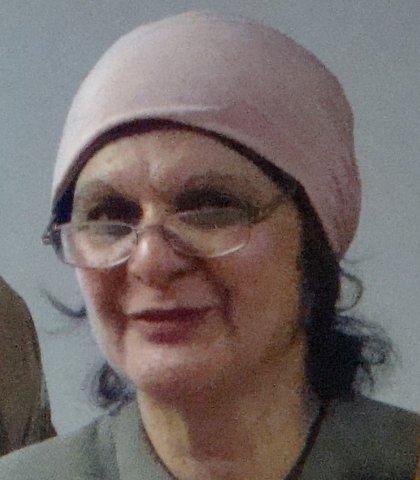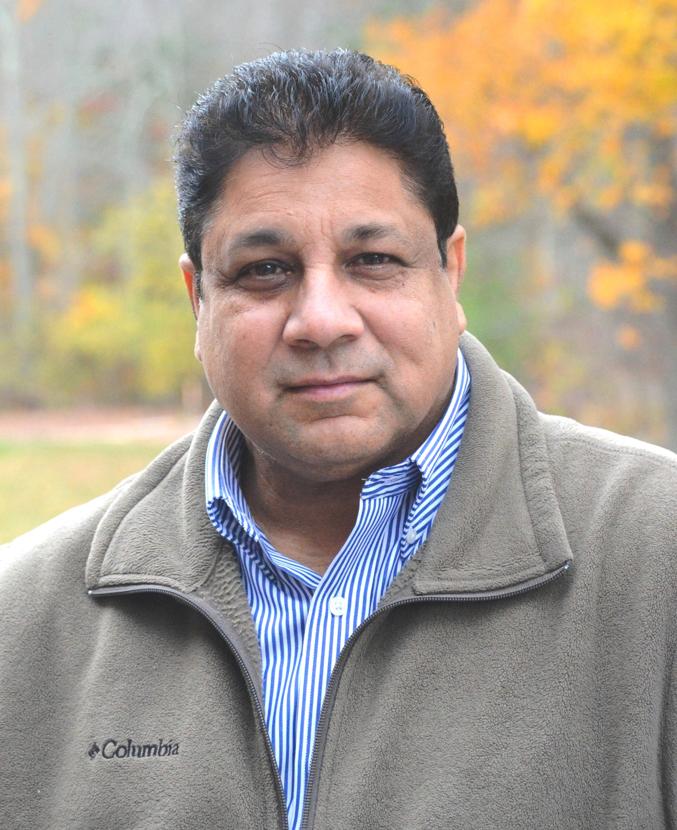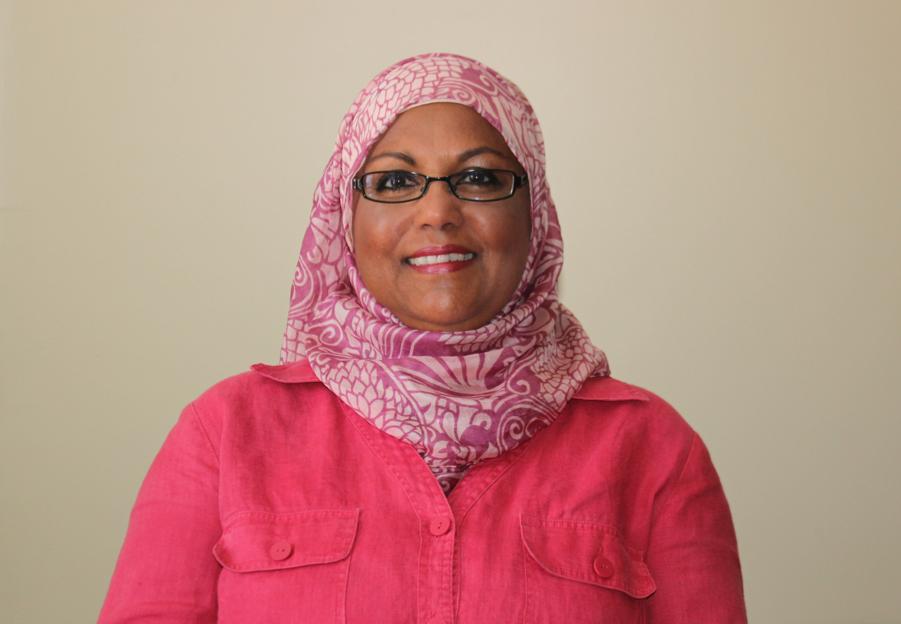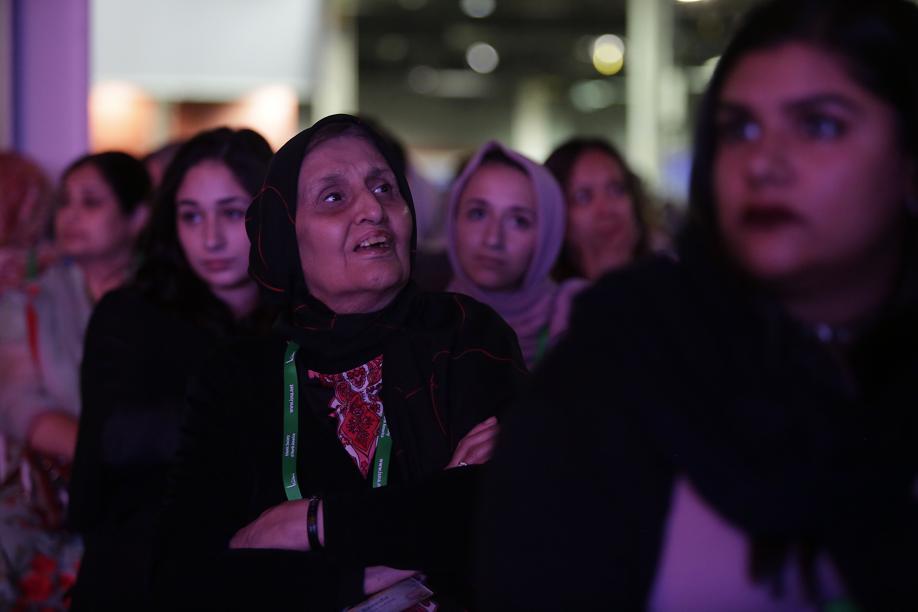



Mary Lahaj was a high school cheerleader in 1964 when the first mosque in New England opened just outside Boston, in Quincy.
It was a different time. In those days, her friends hardly knew what a Muslim was.
The mosque’s eight founding families, including three generations of hers, had roots in Lebanon. Its opening felt like immigrants making good, she said: Building a house of worship was synonymous with being American.
More than 50 years later, things have changed — but not in the way those families must have anticipated. Although they strive and raise children like their neighbors, Muslim Americans live in the long shadow of the Sept. 11, 2001, terrorist attack carried out in the name of Islam.
The magnitude of the attack and resulting military operations have taken something from every American — from our military and their families, including some who are Muslim; from people who view their neighbors and their world differently; and from people who have experienced anti-Muslim harassment or violence, or felt the cold shoulder of suspicion.
Now, at the 15-year mark since the attack, treatment of Muslims has taken center stage in the presidential race. Republican candidate Donald Trump called for a ban on Muslims entering the United States, and the parents of an American Muslim soldier killed in Iraq appeared at the Democratic National Convention to rebuke him.
Many Muslims in America constantly ask themselves how to overcome all that mire without surrendering to homogenization. It can be a struggle to fit in without losing oneself.
“It takes time to find the middle way,’’ Lahaj said.
Her family’s goal was always to be part of America, not separate from it. Her parents were born in the United States and transmitted few foreign cultural practices to their children.
“Our marching orders were to assimilate, and that’s what we tried to do,’’ she said. “My parents just never looked back.’’
Yet they did want their children to have Islam. When the mosque opened, she remembers her mother telling her that now the children would have a place to go for religious community. Her reaction, she recalls, was this: “Will my friends be there?’’ She was 15 and engrossed in her life at Weymouth High School.
“Culture is the driver of the car, and religion is a passenger,’’ she said.
Lahaj said she felt like the only religion she had growing up was the Lord’s Prayer — said in public school — and the Pledge of Allegiance. She loved the sense of oneness she felt saying those words with the other children. On the playground, that unison went away.
“I felt marginal in the Muslim community and marginal in Weymouth, where everyone was Catholic and blond and blue-eyed,’’ she said.
But things were about to get more diverse. In 1965, a year after the mosque opened, a major shift in US immigration policy scrapped quotas tied to nationalities’ existing proportions of the US population. The old system had brought mostly Europeans, but the new law emphasized immigrants’ skills and familial relationships. It inaugurated a new era of diverse immigration, making the mosque a United Nations of the faithful.
Immigration is still a big part of the Muslim story. Sixty-three percent of all Muslim Americans are first-generation immigrants, according to a 2011 survey by the Pew Research Center.
Not all want to adopt American customs. Just north of half — 56 percent — of Muslim Americans said most Muslims who come to the United States today want to adopt American ways of life.
One immigrant, Zia Khursheed of Foxborough, said his family was excited about coming to the United States in early 2001. Boston had a shortage of biomedical engineers, and as an electrical engineer specializing in biomedical equipment, he was able to transfer within his company, he said. He arrived from Pakistan that February with his pregnant wife and two daughters. In April, their son was born at Norwood Hospital.
People they met were friendly, he said. The family initially rented a home in Plainville, and the school principal showed his wife where to shop. At first they knew no one, but they heard about a mosque in Sharon, where he is now vice president.
A suburban American mosque was a new experience.
“It was different, and better, for us to see every different cultural background, and all at the same mosque,’’ he said.
In 15 years, Khursheed said, he has generally never felt discrimination in everyday life. His wife, a physician, has had one or two negative interactions in department stores, but overall, he views Boston and the rest of the Northeast as very civilized and educated, he said.
“America is great because of the immigration policies we have now,’’ he said. “The best brains from all around the world come here.’’
Asked about Trump’s comments about Muslims, he said he takes comfort that any new president will have to work within the Constitution.
Yet a significant number of Muslims have had bad experiences. Twenty-eight percent in the Pew survey said people have treated them with suspicion, and 22 percent said they had been called offensive names.
Still, 80 percent said they believe people are friendly or neutral toward Muslim Americans (48 percent friendly, 32 percent neutral, 16 percent unfriendly, 4 percent don’t know).
Shareda Hosein, who lives in Quincy, said she felt like the “other’’ — an outsider — in Boston from her arrival in 1972, but now that the area is more diverse, she feels like part of the local fabric. Of Indian descent, she grew up in Trinidad, where her family had lived for at least three generations. Her parents came to Boston to better their children’s education. She arrived a few years later, at age 11.
Hosein went to Boston Latin Academy, a public exam school that was mostly white at the time. Although she felt fully included there, the family knew few Indians and was grateful for the opportunity to attend Indian movies hosted every Sunday by local Indian college students.
After high school, she joined the Army, and later the Army Reserve. She experienced a “coming of faith’’ in her 30s and set a goal to become the US military’s first female Muslim chaplain. She began studying in a master’s program at Hartford Seminary in September 2001.
Unlike in her youth, she was now covering her head, so after 9/11, the scarf made her a symbol of America’s relationship to the enemy, she said.
She felt a strange dichotomy: When she wore her military uniform, people would come up to her and thank her. When she wore her civilian clothes and scarf, some people’s expressions and behavior would say, “Go back to where you came from,’’ she said.
In 2003, she applied to become a chaplain, but the military wasn’t ready for her. It denied her application because in Islam, women are not allowed to lead prayer for men. But she finished her degree and later spent a school year as the Muslim chaplain at Tufts University. Now retired from the Army Reserve after 35 years, she works with her daughter on a website that sells “modest chic’’ clothing, volunteers doing spiritual counseling at her mosque, and does speaking engagements.
Mary Lahaj, likewise, became a college chaplain, even after all those Lord’s Prayers in childhood. She kindled a new love of faith in her 30s, earned a master’s at Hartford Seminary, and served as a Muslim chaplain at Brigham and Women’s Hospital and Simmons College. Now retired and living in Westford, she is forming a support group at her mosque to help parents negotiate raising their children Muslim in this country — how to practice their faith and still be part of the culture.
“I think the most important thing that the Muslims can do right now is publicize all the good that they do,’’ she said.
Jennette Barnes can be reached at jennettebarnes@yahoo.com.


 PREVIOUS ARTICLE
PREVIOUS ARTICLE